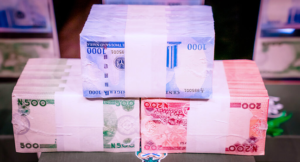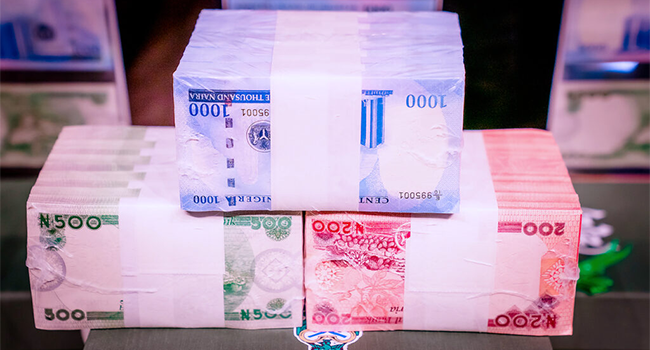The Nigerian naira has shown a notable recovery against the US dollar, closing at N1,576.10 in the official Investor and Exporter (I&E) window on Thursday, September 26, 2024. This marks a significant 5.48% appreciation from the previous day’s rate of N1,667.52, reflecting the naira’s renewed strength despite ongoing market volatility.

The market turnover in the I&E window experienced a dramatic increase, soaring by 232.5%. It rose from $100.47 million on Wednesday to $334.05 million on Thursday. This surge indicates heightened trading activity and interest in the naira, contributing to its appreciation.
During the trading session, the naira experienced fluctuations, reaching an intra-day high of N1,699.00 per dollar and a low of N1,567.00, before settling at the closing rate of N1,576.10. In the parallel market, the naira opened at N1,650.41 against the dollar, fluctuating to a high of N1,660.38 and a low of N1,646.58, eventually closing at N1,660.38.
The naira has faced challenges since it fell below the N1,600 threshold in July, amid market volatility. Year to date, the currency has depreciated by approximately 75%, driven largely by soaring inflation and a high demand for foreign currency. However, there has been a slight improvement in Nigeria’s external reserves, which increased from $36.305 billion at the end of August to $36.730 billion by mid-September.
In response to these challenges, the federal government announced that ExxonMobil plans to invest $10 billion in Nigeria’s offshore oil operations. Additionally, the Central Bank of Nigeria (CBN) has begun selling an additional $20,000 to each Bureau de Change (BDC) operator at an exchange rate of N1,590 per dollar. This initiative is part of a broader strategy to alleviate demand pressure on the naira. According to CBN guidelines, BDC operators are permitted to sell this foreign exchange to eligible end-users at a margin not exceeding 1% above the purchase rate.
The announcement of ExxonMobil’s substantial investment is a positive development, potentially enhancing the overall economic sentiment in Nigeria. Such investments may influence major currency players to adopt a more favorable outlook on the naira in the long term. Furthermore, the CBN’s initiative to distribute dollars to BDCs aims to stabilize the naira by increasing the availability of foreign exchange. This move is expected to help alleviate pressures in the parallel market, fostering a more balanced currency environment.
While the naira continues to face challenges, recent developments and strategic initiatives by the government and CBN offer hope for a more stable and robust currency in the future.




